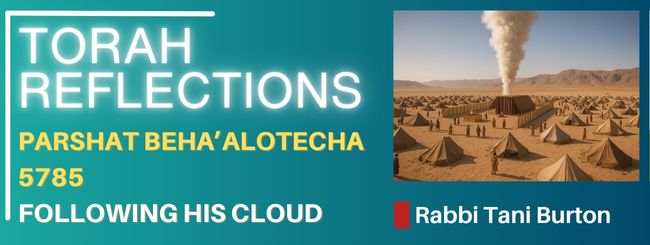בס”דI
Integrating Torah into one’s life through reflection and conversation can be an incredibly fun and engaging experience. It’s a journey of discovery, where ancient wisdom and timeless teachings come to life in our daily experiences. Through reflection, we have the opportunity to dive deep into the rich tapestry of Torah, extracting profound insights and lessons that resonate with our modern lives. The joy lies in the ‘aha’ moments, those instances when a Torah verse or story suddenly connects with our personal challenges, aspirations, and values. And when we engage in conversations about Torah with others, it becomes an interactive exploration, where diverse perspectives and interpretations enhance our understanding. These dialogues often spark excitement and intellectual curiosity, making the learning process both enjoyable and fulfilling. Torah becomes a vibrant and dynamic part of our lives, offering not just guidance but also a source of endless fascination, connection, and growth.
NOTE: Don’t feel obligated to go through every source or answer all the questions—unless you want to. Even one source, or one question will give you plenty of material for discussion and meditation. Enjoy this!
Some thoughts about Parshat Beha’alotecha
Learning to Move with G-d
“At the command of the L-rd they encamped, and at the command of the L-rd they journeyed…”
(Numbers 9:18, 20, 23)
In this week’s Torah portion, the Israelites’ travels through the desert were guided not by maps or military strategy, but by something far deeper: the presence of G-d, as manifested in a miraculous cloud. When the cloud rested, the people encamped. When it lifted, they moved—no matter how long or short their stay had been. It could be for a day, a month, or a year.
The repeated refrain—“at the command of the L-rd they journeyed, and at the command of the L-rd they encamped”—is not just historical narration. It’s a spiritual teaching. The journey of the Israelites in the desert becomes a model for each individual soul, called to remain sensitive to Divine guidance in our own lives.
Living Responsively
What does it mean to “journey by the word of G-d” in a world without prophetic clouds?
For the Jew, it means shaping life around the mitzvot of the Torah, which define what it means to live according to G-d’s will. For the Noahide—the righteous non-Jew—the same principle applies within the framework of the Seven Laws of Noah, which represent a universal moral covenant between G-d and humanity. These laws are not simply prohibitions; they are portals into Divine relationship. And like the cloud in the desert, they orient us toward the sacred center—toward a life of meaning, justice, and reverence.
But there’s more. The cloud didn’t just tell the Israelites where to go—it taught them when to stay and when to move on. This flexibility is just as important. At times, staying put—spiritually, emotionally, or even physically—is a form of service. At other times, we are called to move forward, even when it feels uncertain. Discernment and responsiveness are essential aspects of spiritual growth.
Avoiding Spiritual Rigidity
The Izbitzer Rebbe offered a striking interpretation of the commandment, “You shall not make G-ds of metal for yourselves.” He suggested this doesn’t only refer to physical idols—it can also refer to a mindset where one’s concept of G-d becomes rigid, “metallic,” and unmoving. When faith becomes too fixed, it can lose its vitality. We may end up worshipping our idea of G-d rather than relating dynamically with the living Source of all being.
This warning applies to Noahides too. It’s possible to approach the Seven Laws as a checklist, as something static. But that misses the point. Our task is not to invent new commandments—that would violate the principle of mechadesh dat, adding unauthorized religious obligations. But we are invited to grow spiritually within the boundaries of what G-d has given.
There is room for creativity, reflection, and personal elevation. Acts of kindness, charitable giving, learning Torah, or building moments of reverence into our day—these can all be expressions of following the “cloud,” even for those not bound by all 613 mitzvot.
Divine Service in Real Time
The cloud over the Tabernacle reminds us that Divine service is not a “one-size-fits-all” program. G-d may call one person to patience, another to courage, another to restraint, another to generosity. These calls can change over the course of a lifetime—or even from one day to the next. What matters is staying attuned.
And that’s what makes service of G-d feel alive. We don’t worship a static idea. We are called into relationship with a living, guiding Presence—one that moves, leads, waits, and invites us to grow.
Now, reflect on the following questions:
- Where in my life right now is the “cloud resting”—where am I being asked to stay, wait, or listen?
- Where might the “cloud be lifting”—inviting me to take action, make a move, or shift perspective?
- Do I see the Seven Laws as a living framework for growth, or just as a checklist?
- How can I cultivate spiritual flexibility without violating the principle of mechadesh dat?
- What daily practice helps me stay attuned to G-d’s guidance in real time?
May each of us—Jew and Noahide alike—learn to walk in rhythm with the cloud, to stay when we are meant to stay, and to move when we are meant to move. And may our service of G-d be ever fresh, alive, and sincere.
Shabbat Shalom!
By Rabbi Tani Burton
If you want more questions for contemplation, SEE THE OTHER BLOGS FROM RABBI TANI BURTON ABOUT DE PARSHAT QUESTIONS
© Copyright, all rights reserved. If you enjoyed this article, we encourage you to distribute it further.
Our blogs may contain text/quotes/references/links that include copyright material of Mechon-Mamre.org, Aish.com, Sefaria.org, Chabad.org, and/or AskNoah.org, which we use in accordance with their policies.
